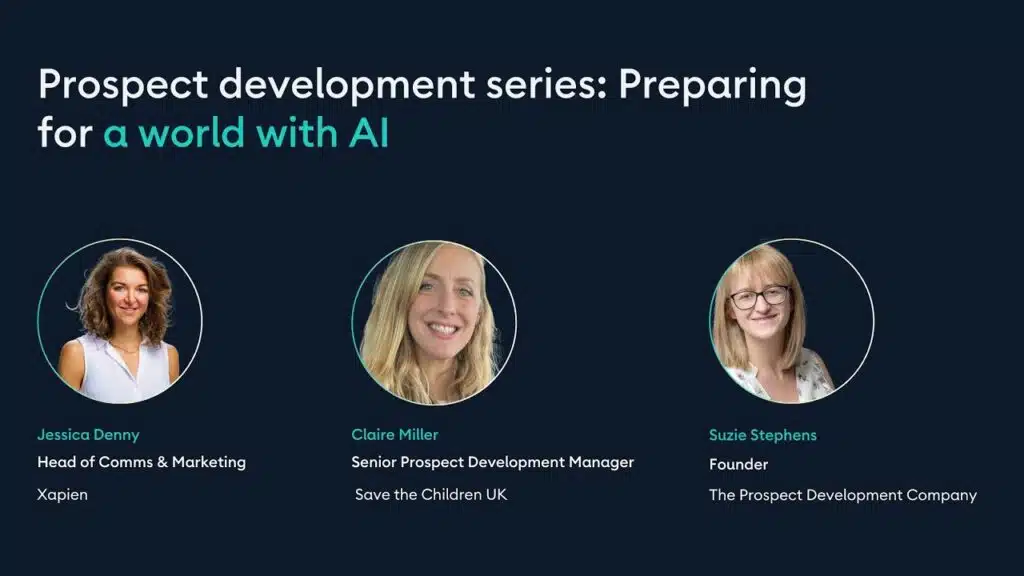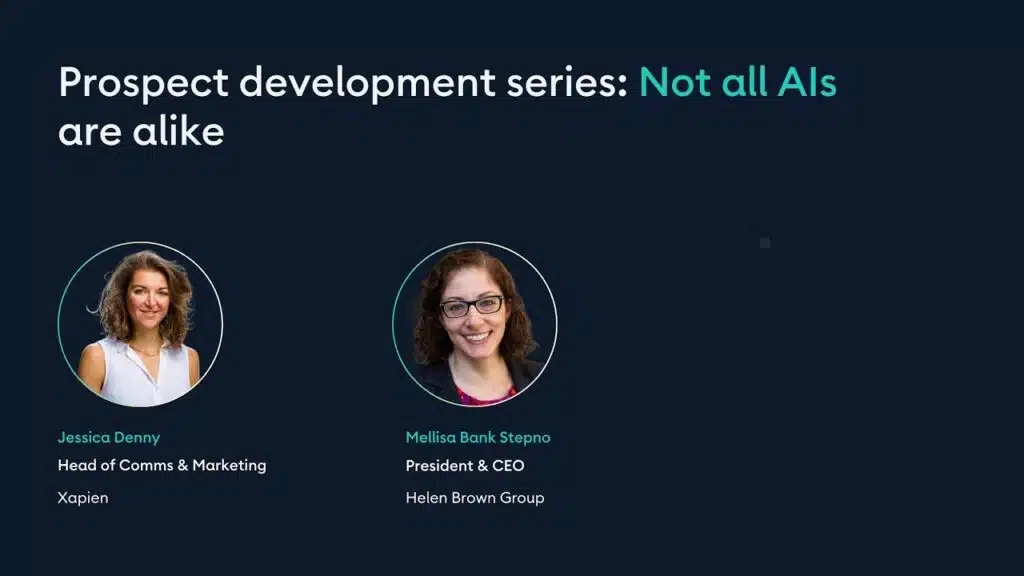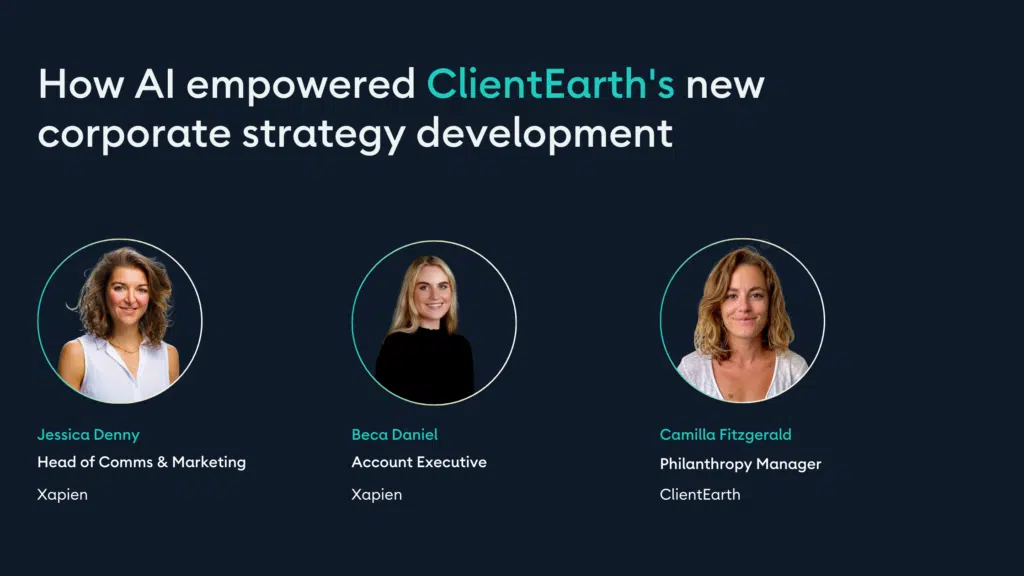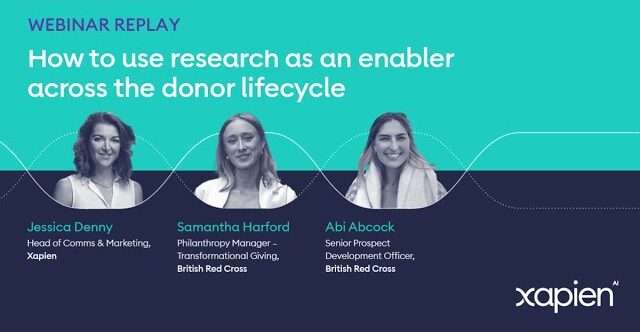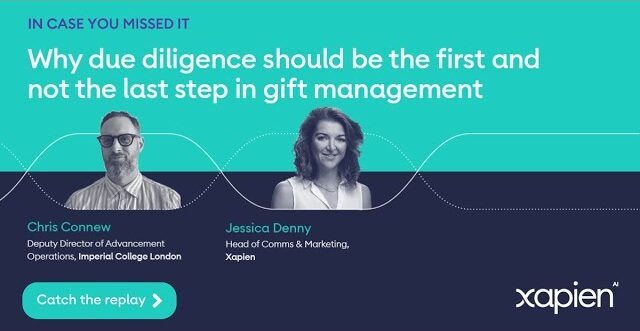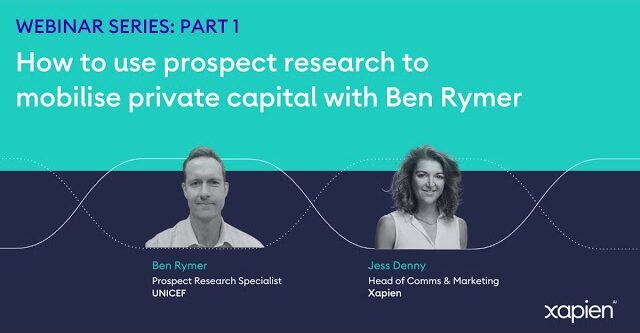Mercy for Animals
Foundations are a key area for the Mercy For Animals research team. They spent days manually searching, analyzing, and summarizing information about past philanthropic initiatives and foundation directors to build prospect profiles for outreach.
Read MoreWebinar: Prospect development—preparing for a world with AI
This webinar explores the evolution of prospect research and the transition from traditional methods to modern technology. Initially, researchers relied on manual data entry. But advancements in technology, particularly search engines and AI, have transformed the efficiency and accessibility of information. Despite these changes, the core mission of prospect research—maximising fundraising potential for nonprofits—remains unchanged. AI has simply enabled researchers to provide timely insights to fundraisers. They’re evolving from just information gatherers to strategic partners, collaborating with fundraisers to develop effective engagement strategies.
Read MoreAnglia Ruskin University
Anglia Ruskin University (ARU) faced challenges in maintaining a consistent due diligence process for international partnerships, which posed potential risks for the organisation. Due diligence was carried out manually, resulting in time-consuming efforts that often got deferred until the final approval stages. As a result, the university felt compelled to carefully evaluate the relationship, given the substantial time and effort already invested.
Read MoreClientEarth
ClientEarth is a global charity which litigates against organisations doing harm to the environment. The philanthropy team had received approval to launch a new corporate fundraising strategy. However, partnering with the wrong corporation is ClientEarth’s most significant reputational risk, so they needed to conduct stringent due diligence.
Read MoreRoyal Air Force Museum
There are six individuals in the development team. One team is responsible for engaging with high-net-worth individuals and major donors, another for trusts, foundations, and statutory income, and then there is the corporate partnerships team. While trust and foundations, as well as companies, bring in substantial revenue with minimal time investment, the RAF Museum see high-net-worth individuals as a large growth area.
Read MoreWebinar: Prospect development—not all AIs are alike
There’s a need for reliable AI tools in the prospect development space, especially as AI models evolve rapidly. Purpose-built tools can simplify the role of researchers, allowing them to focus on strategic tasks instead of constantly retraining. AI has the potential to elevate roles within organisations, moving professionals beyond administrative tasks to become strategic partners in fundraising and decision-making processes. It draws parallels to the early days of the internet. While AI is currently in a nascent stage, it will become integral to work processes, much like search engines have. Before using AI tools, particularly generative models, it’s essential to review privacy policies to ensure that sensitive data isn’t misused. Research tools built specifically for the industry, like Xapien, are more appropriate for handling confidential information about prospects.
Read MoreWebinar: ClientEarth case study
ClientEarth’s philanthropy team had secured approval for a significant corporate fundraising strategy. However, with limited capacity, they needed a way to scale their research and due diligence efforts. In this webinar, Camilla Fitzgerald, the Philanthropy Manager at ClientEarth, will discuss how the team lacked a dedicated prospect researcher responsible for conducting due diligence and providing reports to fundraisers. To address this gap, they set out to find the right tool. They chose Xapien as an on-demand research tool that could be directly accessed by fundraisers. Camilla will explain how she made a business case for using AI, how it has been adopted across the entire philanthropy team, and the value it has unlocked for ClientEarth.
Read MoreWebinar: How to use research as an enabler across the donor lifecycle
In this webinar, we look at how the British Red Cross (BRC) prospect development team delivers tailored, high-quality research to unlock value for the transformational giving team, partnerships team, and a diverse group of fundraisers focused on securing high-value gifts from individuals, trusts, foundations, corporate partners, and institutional funding bodies. This research is essential for engaging and nurturing donor relationships, understanding the philanthropic landscape, and making data-driven decisions that enhance fundraising strategies. Most importantly, it supports relationship management by identifying optimal moments to increase donor support. Additionally, it aids in framing proposals and determining which British Red Cross team members are best suited to engage with specific donors. This approach ensures a more informed and personalised strategy for building long-term relationships with BRC donors.
Read MoreWebinar: Why due diligence should be the first and not the last step in gift management
In this webinar, we’re joined by Chris Connew, the Head of Operations in the Directorate of Development and Alumni Engagement at Queen Mary University of London. We discuss how to drive efficiencies in philanthropy, the role of due diligence in gift management, and where it should fit within the process (spoiler alert: it’s not at the end). We also explore how to use due diligence to create an efficient gift management process, enabling organisations to speed up the gift acceptance process.
Read MoreWebinar: How to use prospect research to mobilise private capital
In the first of this webinar series about driving efficiencies in philanthropy, we’re thrilled to be joined by Ben Rymer. Ben is a fundraising expert with 14 years of experience working at household-name charities like Age UK and Cancer Research UK. Currently, he helps UNICEF’s Prospect Research Specialists raise private funds, focusing on opportunities worth $1 million or more. He’ll share his knowledge with us, discussing inefficient prospect research processes he’s seen, the problems they cause, successful approaches he’s encountered, and the lessons we can learn from them.
Read More
